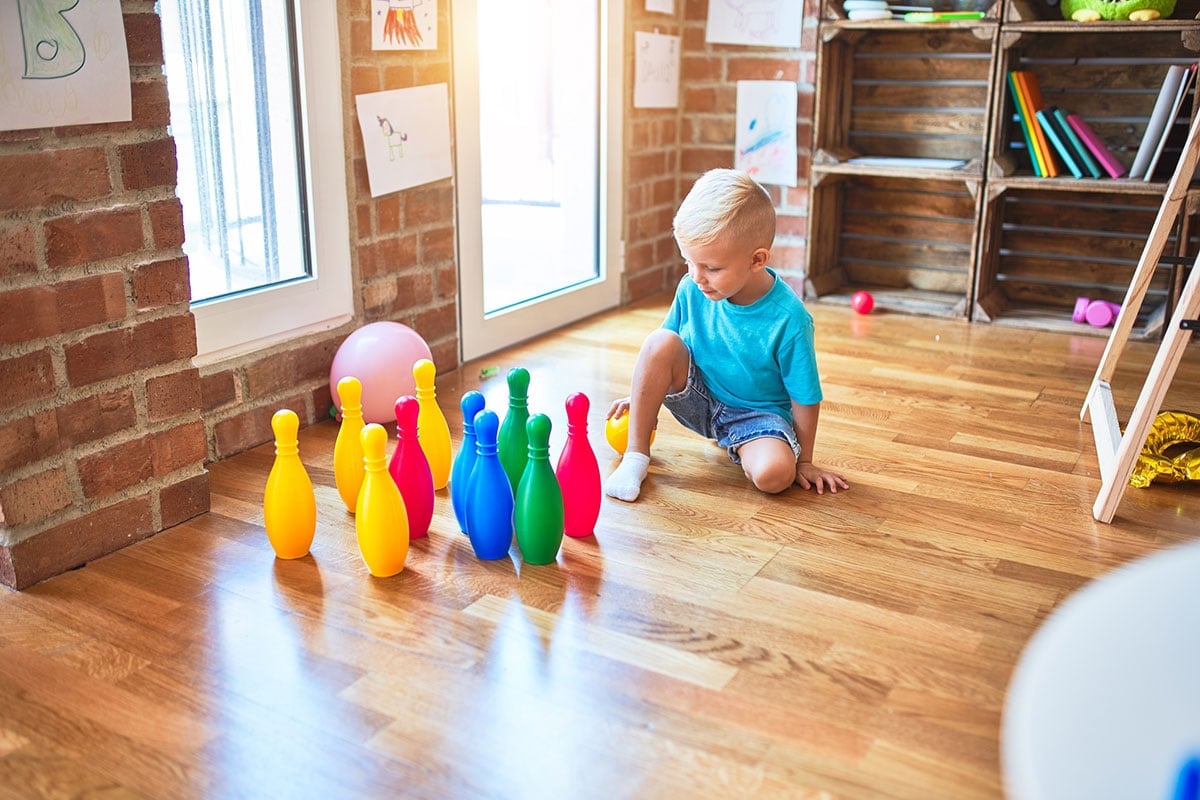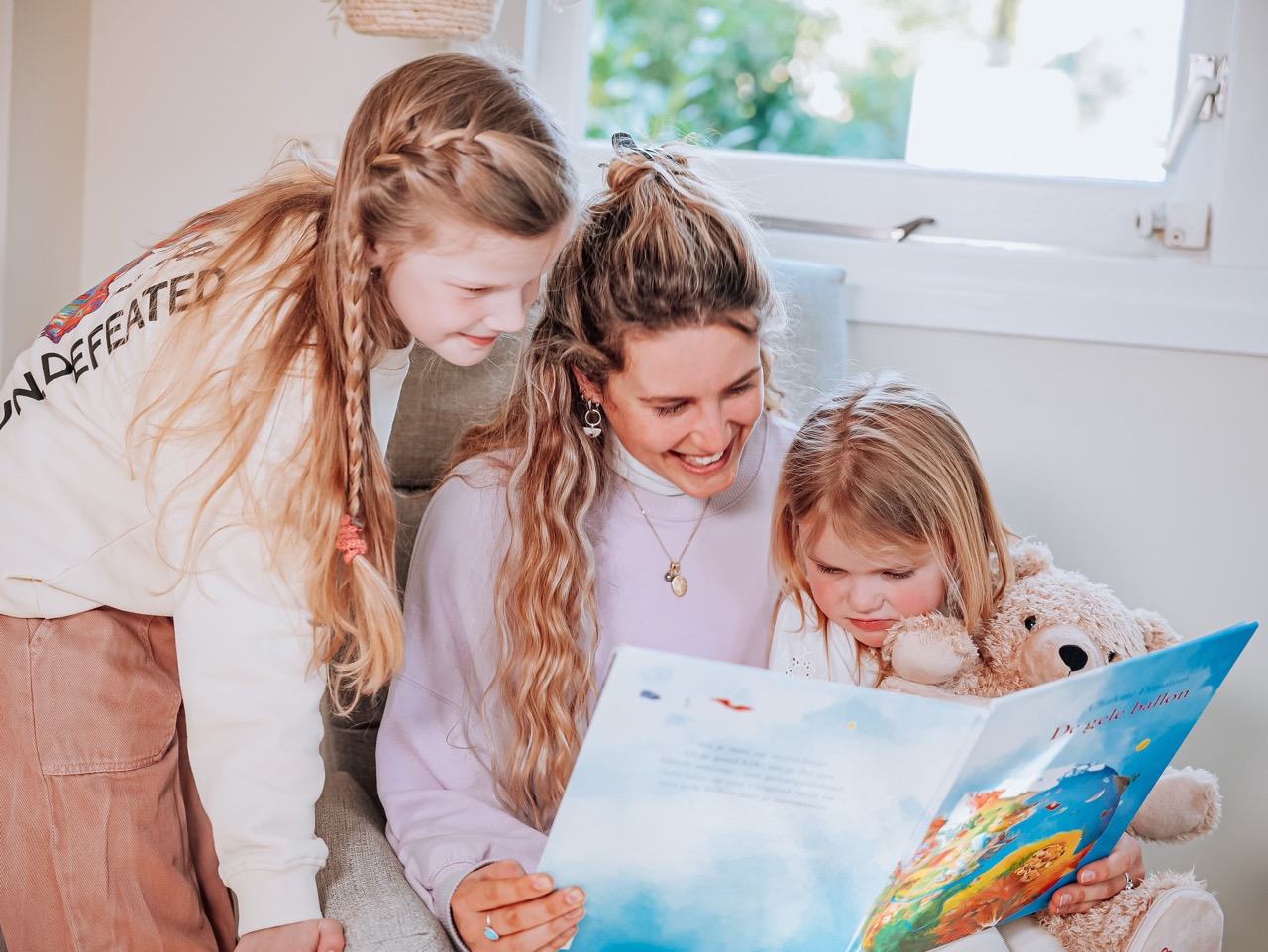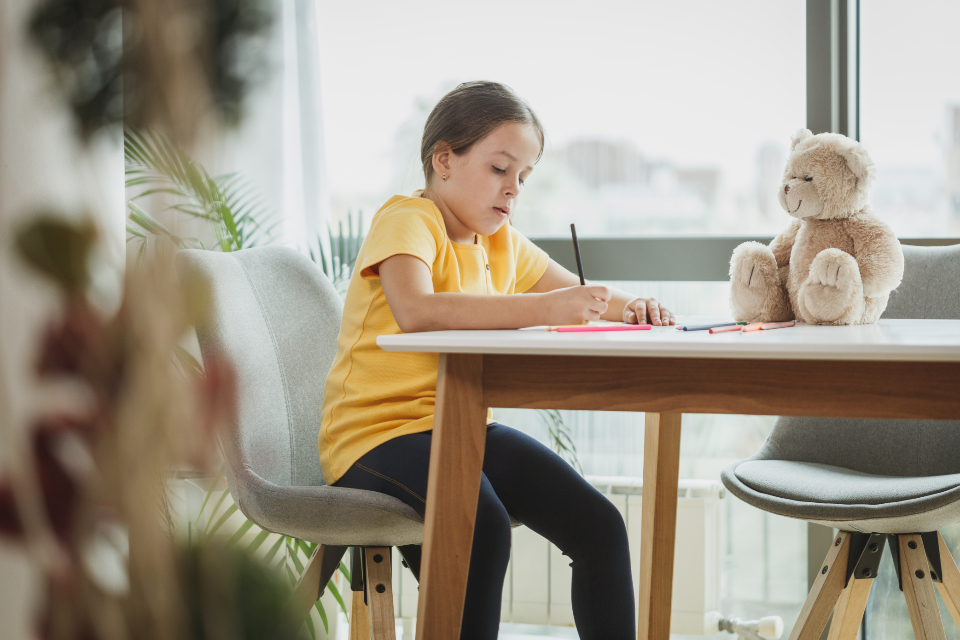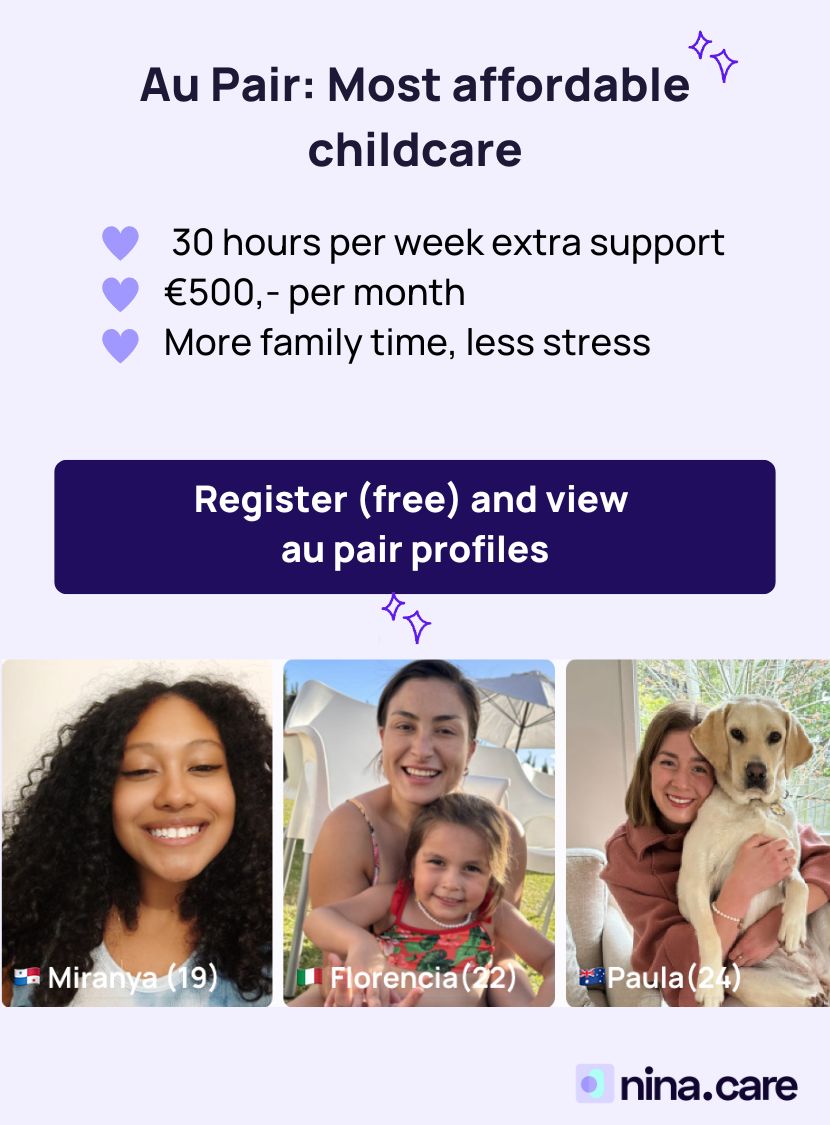Picture this: The kids have just come home after a long, tiring day at school. You’ve made some afternoon tea and you’re all enjoying a nice chat, catching up on each other’s day.
You glance at the clock, argh! 15:30 already! It’s time to take your six-year-old to swimming lessons, but your ten and eleven-year-olds really don’t want to come along to “boring swimming lessons.”
You feel your blood pressure start to rise as you think, the pool is just five minutes away. You look over at your two older ones, now comfortably watching TV, and wonder… is today the day they stay home alone for the first time?
Ready or Not?
Every parent faces this milestone, and it can be as nerve-wracking as the first day of school! Suddenly, all these questions come flooding in: When can I leave kids home? Is this an appropriate age? Does my child have the maturity level and the necessary skills to handle being home alone?
Take a deep breath, there’s no need to have a heart attack about this new stage of independence!
While Dutch law doesn’t specify a minimum age for leaving children home alone, the decision ultimately rests with you as a parent. It depends on your child’s readiness and their safety and is really determined on a case by case basis.
So, let’s explore when and how you can confidently leave your child(ren) home alone without compromising any laws.
What Is the Right Age to Leave a Child Home Alone?
While there’s no specific law in the Netherlands which sets a minimum age for leaving your child home alone, you are always responsible for their well-being.
According to Article 255 of Dutch law, if you leave your child in a helpless situation, you could face up to two years in prison or a hefty fine. But don’t worry, this isn’t meant to scare you!
Just see it as a gentle reminder to make sure your child is ready, safe, and confident before taking that next step towards independence.
Attachment Theory and How to Determine the Appropriate Age
Determining the appropriate age for leaving your child home alone isn’t always straightforward. Every child is different, and readiness depends on factors like their maturity level, ability to follow instructions, and comfort with the idea of being alone.
Attachment theory plays a crucial role in this process. When a strong emotional bond between a parent and child is fostered, the child’s readiness to explore new levels of independence, like staying home alone, becomes easier.
For example, consistently offering comfort and reassurance during difficult times builds trust, which gives the child confidence in their ability to handle challenges independently. This secure bond helps children to feel safe even when they are physically separated from their parents.
Experts suggest that children aged 9-10 years can start with very short periods at home alone, and by 11-12 years, many are ready for a couple of hours during the day.
Ultimately, it’s up to you to make a judgement based on your child’s readiness and their level of understanding safety. Remember, as long as you’ve prepared your child and taken the right precautions, you’re setting them up for success while ensuring they are feeling safe and supported.
Guidelines by Age Group
Since there are no legal age limits in the Netherlands for leaving a child home alone, here are some general guidelines that can be helpful:
- Up to 8 years: Children should not be left home alone; this could be seen as neglectful supervision. At this age, children require adequate supervision to ensure safety and to prevent situations that may pose immediate harm.
- 8-10 years: This is a great time to start practising short periods of being home alone during the day. Leave your child alone for no longer than 30 minutes and stay nearby. It’s a good opportunity to assess your child’s readiness.
- 11-12 years: Most children at this age can manage being home alone for up to 2 hours. However, ensure your child is prepared for emergency situations and they know who to call if they need help.
- 13-15 years: At this stage, children are typically mature enough to stay home alone during the day. However, it’s advisable to avoid overnight stays without responsible adults.
- 16 years and older: Teenagers are often ready to stay home alone overnight. Make sure they have the necessary skills, are emotionally mature, and are comfortable with the idea to be left home.

How to Assess Your Child’s Readiness
Every child is different, and while age can serve as a guideline, it’s your child’s ability and comfort that matter most. Here are some questions to consider:
- Is your child comfortable with the idea of staying home alone, or do they feel anxious?
- How does your child handle unexpected situations, such as the power going out or if there’s a knock on the door?
- Does your child know the emergency contacts such as 112, your cell phone number or a trusted neighbour they can call on for help?
- Can you trust your child to follow the rules you set, like not turning the living room into a slime factory or inviting the postman in for a tea party while you’re away?
If your child shows signs of being easily scared or if they lack the maturity needed, it may be best to wait a little longer before leaving them alone. On the other hand, if your child is responsible and ready, you can start by practising short periods of alone time.
Safety Tips for Leaving Your Child Home Alone
Whether it’s for a short period or a few hours, safety should always be your top priority. Here are some safety tips to keep in mind:
Discuss Potential Emergencies
Prepare your child for situations that may arise, such as hearing the fire alarm, or if they see smoke. Make sure they know what to do, whether it’s calling you, a neighbour, or in an extreme case, calling the emergency number (112). Explaining when to call 112 helps them understand how to react appropriately if there’s a substantial risk.
Make a Contact List
Provide a visual list of emergency contacts that includes your number, trusted neighbours, and any nearby family or friends. Teach them to memorise important numbers and store them somewhere accessible.
Limit Dangerous Items
Keep dangerous items like knives, chemicals, or matches out of reach. Make sure your child knows which items they are not allowed to touch, particularly when they’re home alone.
Set Boundaries and Rules
Establish clear boundaries about what is allowed and what isn’t. For example, children should not use the stove or sharp objects. It’s also important to agree that the door should only be opened for specific people. For overall safety, if someone rings the doorbell and your child isn’t expecting anyone, they should not answer.
First Aid Kit
Ensure there’s a first aid kit at home and teach your child how to use it. They should know what to do if they have a minor injury and when to call for help in case of bodily injury.
Secure the House
Make sure the doors are locked when you leave. Teach your child to lock the door behind you after you leave and to not let anyone in unless they’re someone you both trust.
Check-In Regularly
Call your child while you’re out to make sure everything is going well. It’s comforting for both you and your child to know you’re just a phone call away. If you feel it’s necessary, consider using a GPS kids’ watch so that you can keep track of where your child is, whether at home or playing outside.
Your Child Home Alone for the First Time? How to Make It Work Smoothly
So, you’re ready to take the plunge to let your child stay home alone for the very first time. You’ve determined they’re at an appropriate age and that their maturity level seems up for the challenge. But where do you start? And how do you make sure it’s a safe and positive experience for all?
Imagine this:
It’s a sunny afternoon, and you need to run a quick errand. Maybe it’s picking up a sibling or grabbing some last-minute groceries. Your child seems ready. They’ve shown they can follow instructions, they’re comfortable with the idea, and you’re feeling confident to try a test run.
Here’s how you can make this first solo adventure a success while ensuring their safety.
Before You Leave…
You ask your friendly neighbours if they could keep an eye out, just in case. A little child supervision from trusted adults can be a big comfort for both you and your child.
You sit down with your child, letting them know exactly where you’re going, how long you’ll be gone, and what to do if anything unexpected happens.
“Remember,” you say, “I won’t be gone for more than half an hour, and if anything happens, call me right away. You’ve got my cell phone number, and I’ll be close by.”
Your child nods, feeling a mix of excitement and responsibility.
Keep it Simple
For this first test, you keep it simple, no inadequate supervision going on here!
You stay close to home, maybe just a few streets away, and make sure to call and check in during your outing. “How’s it going?” you ask. Your child reassures you that everything’s fine, and they’ve even tidied up a bit (bonus points!).
Connection and Reflection
When you get back, you sit down for a chat. “How did it feel?” you ask.
This follow-up is essential. Understanding your child’s experience helps you judge whether they’re ready for a little more independence next time or if you need to wait and try again later.
It’s all about building that readiness and confidence while ensuring adequate supervision when needed.
The first time leaving your child home alone can be a big step for both of you, but with some preparation, clear rules, and staying within their comfort zone, it’s a step towards helping them grow and towards you feeling confident in their safety.
When Your Child is Not Ready
If your child is still too young or you’re not comfortable with the idea of them staying home alone, there are other options to give you some peace of mind.
You could ask a family member or friend to help out, or you could hire a babysitter.
Nina.care offers reliable and professional childcare services, ensuring your child receives adequate supervision while you’re away.
Whether it’s for a few hours during the day or for an evening out, having a trusted babysitter can provide the peace of mind you need, knowing your child is in capable hands.
The safety and well-being of your little one are always worth prioritising, and with Nina.care you can feel confident they are well cared for.

A Note on Sibling Supervision
You might wonder if an older sibling can supervise their younger siblings. This depends on both children’s maturity levels, child’s age, and how well they get along.
Even if your older child is responsible, it’s still important to consider whether they can effectively manage a situation involving two children or more.
Conclusion: Trust Your Judgement
Whether children stay home for just an hour or an entire afternoon, assessing their maturity and readiness is crucial to ensuring their safety. Leaving your children home alone is a significant step and an important milestone in their journey toward independence.
Every parent asks, “What age can you leave a child home alone?” The answer depends on your child’s maturity, ability, and comfort level. Consider starting with a test run to gauge how they handle being alone and to build their confidence over time.
Use these guidelines as a reference and trust your instincts. The more prepared your child is and the more you practice, the easier it will be for both of you.
Remember, every child is different, and what works for one may not work for another. The key is to ensure your child’s safety and to make the decision together, step by step.
Is the Thought of Leaving Kids Behind Still Giving You a Heart Attack?
Not to worry, many parents need some extra reassurance.
Maybe you have kids under the recommended age limit? Or perhaps your child has a medical disability or needs some extra support with mental abilities? It’s great that you a considering your child’s ability and child’s level in order to adhere to Dutch laws.
Other parents have considered hiring an au pair. This is a responsible person who can ensure your child is never left unsupervised. If you need to pop out for a quick errand or work is holding you back late, an Au pair can create a fun play area within the home and can handle almost any emergency situation.
Are you considering hosting an au pair? You can read more about it here.


